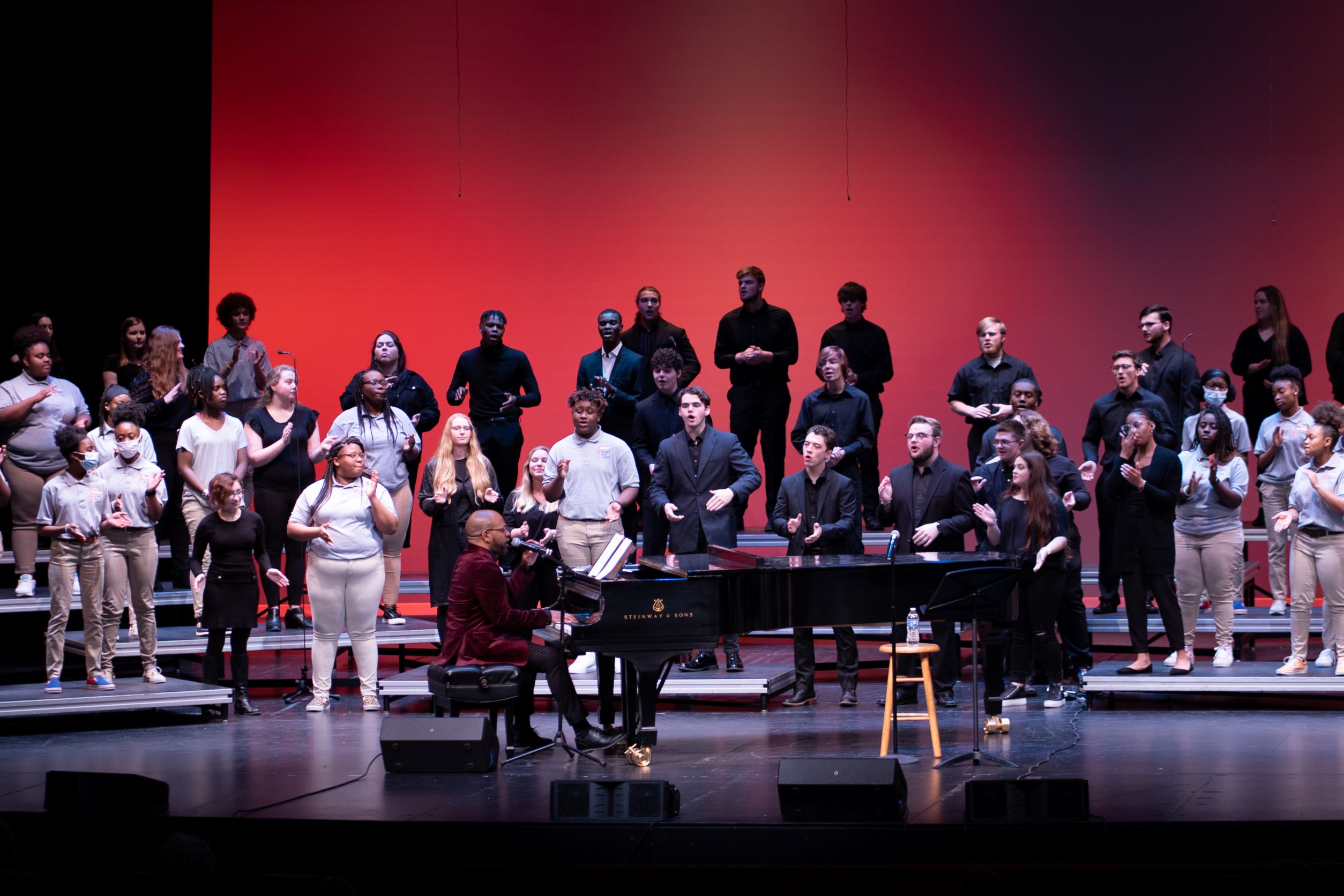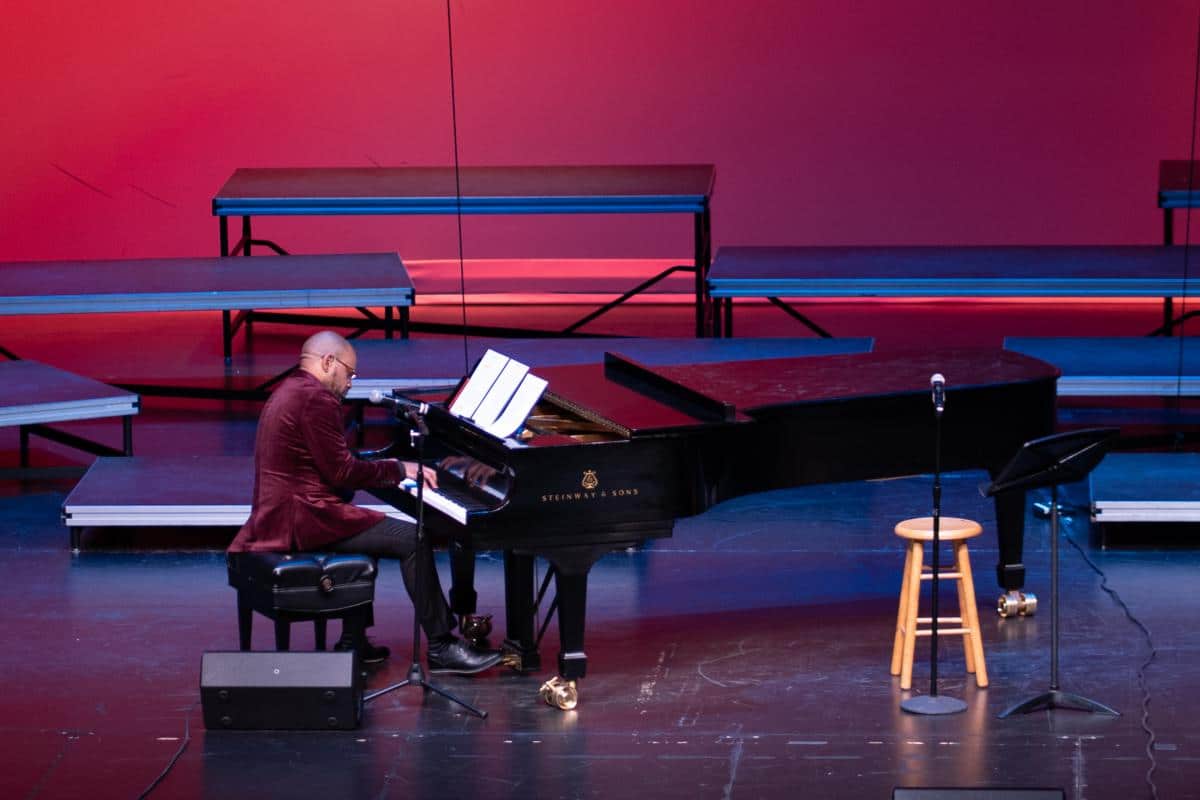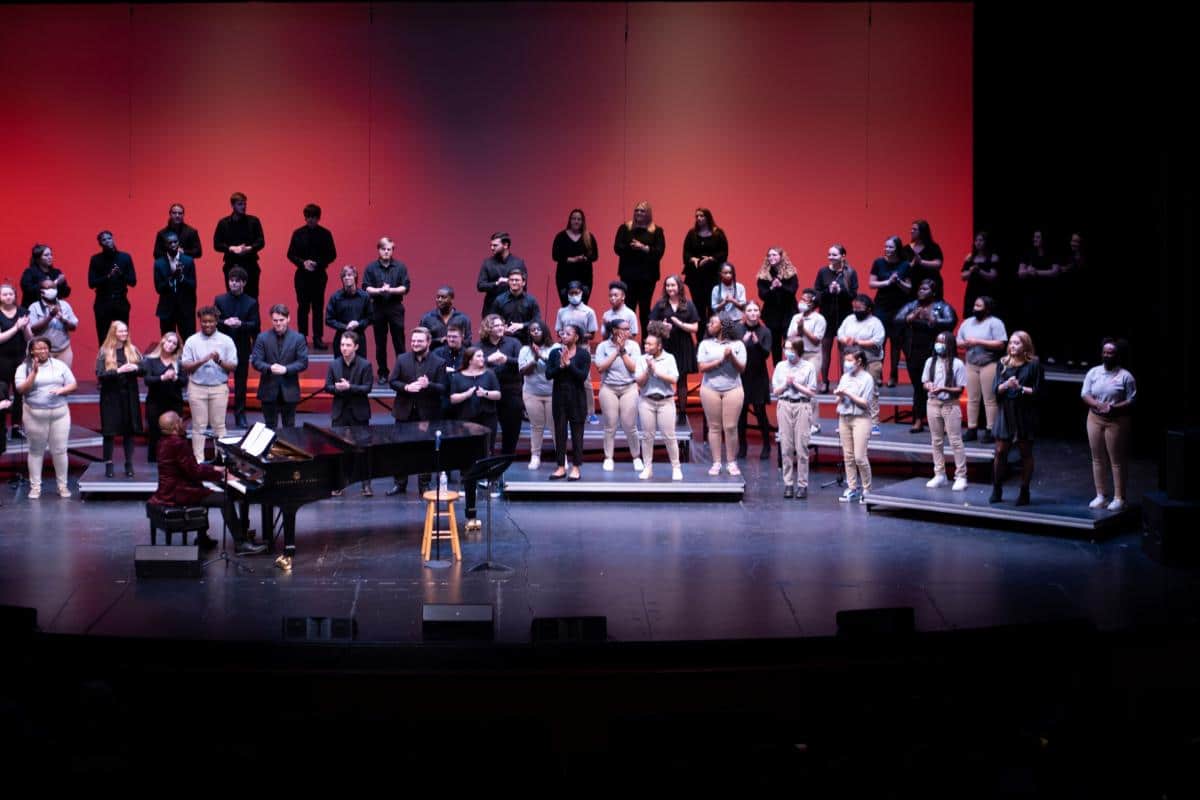
Students, staff, and community members gathered at the Brownstone Center of the Arts last Friday for an extraordinary evening of history and music.
Dr. Jeffrey Murdock, who was the 2021 GRAMMY Educator of the Year, presented “A Journey Through Black Music” featuring both lecture and musical examples performed with him playing piano and singing.
His presentation was an incredible example of the power Black History Month programming can have. The first portion of the evening had Murdock speaking about different time periods of Black music in American history. The second half had dozens of young men and women join him on the stage.

“Music has always been a part of the Black experience and the American Experience,” said Murdock. “I will take it a step further in saying the American music experience is inextricably linked to the Black experience.”
The journey through time started with the spirituals sung by slaves in the fields. Songs such as “Swing Lo, Sweet Chariot” and “Go Down, Moses” that seemed religious to the slave masters, but really contained coded messages for the Underground Railroad.
The audience was then taken through a jump in time post slavery to the Harlem Renaissance, the growth of artistic output centered in Harlem, N.Y. between the end of World War I and the mid-1930s. Some of the work of the musicians and poets was taken and used without credit while others remained as it was unique to the plight they faced.
Sometimes the songs tackled uncomfortable topics such as the 1950s Billie Holiday piece, “Strange Fruit.”
The Black Church was discussed at is served as a place of refuge for the community. Each church has its own approach to the music, often putting their own spin on the same songs. They always contained the overarching theme of Christ’s love.
“It was a place where you could find comfort in a place where you could find fullness of joy,” said Murdock. “But a time came when the music had to leave the church.”
Songs like “Turn Me Around” and “We Who Believe in Freedom” were sung when calling attention to civil rights. Instead of covert messages, the songs were more overt in their messaging.
Yet, joy remained in Black music with songs like “Superstition” by Stevie Wonder released in the early 1970s. And songs like “Glory” and “A Change Is Gonna Come” are songs sung in the name of continued pursuit of equality.
GOSPEL MUSIC IMMERSION

After his official presentation, Murdock was joined on stage by the PRCC Singers and the East Marion Gospel Choir. The students spent several hours that day preparing for the event and gave amazing performances.
“Having an opportunity to perform with Dr. Murdock was a life-changing experience for the singers of the East Marion Gospel,” said Gary McCullum, director of the East Marion Gospel Choir. “His notes on singing authentic African American songs has enlightened us to reach new heights in our expressive musical approach.”
At times, Murdock encouraged the audience to “join the choir” with many enthusiastically belting out the lyrics taught in a call and response style. This included the initial piece, “Just Want to Praise You Forever.”
Pieces by Richard Smallwood with a more classical feel for the piano accompaniment that were sung included “His Mercy Endureth Forever” and “Total Praise.” “All in His Hands” and “Goin’ up Yonder” were among the other selections for the evening.
ABOUT DR. JEFFREY MURDOCK
Murdock is internationally known as a conductor, clinician, and skilled gospel musician. He currently serves as Associate Director of Choral Activities and Assistant Professor of Music at the University of Arkansas. He is the 2016 Connor Endowed Faculty Fellow in the J. William Fulbright College of Arts and Science, and 2019 Most Outstanding Faculty at the University of Arkansas. He is the 2021 GRAMMY Music Educator of the Year.
Murdock has conducted regional and state honor choirs, and headlined conferences in 26 states and 5 countries. His research interests include Culturally Responsive Pedagogy in the Choral Classroom, Music in Urban Schools, and Social Justice in Music Education.
Murdock holds a Bachelor’s degree in Music Education and a Master of Music degree in Choral Conducting, both from the University of Southern Mississippi, and a Doctor of Philosophy (Ph.D.) in Music Education from the University of Memphis.
For the latest news on Pearl River Community College, visit PRCC.edu and follow us on Twitter (@PRCC_Wildcats), Instagram (PRCCWILDCATS), and Facebook (@PRCCMKTG).







